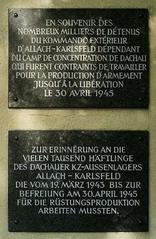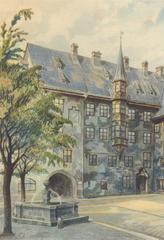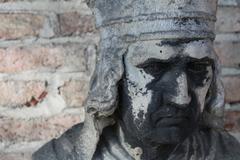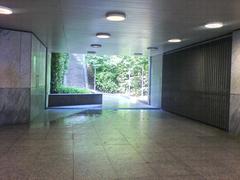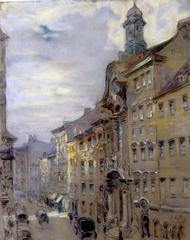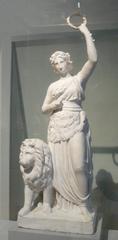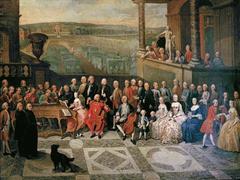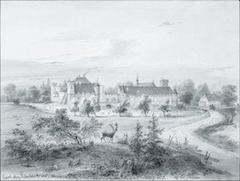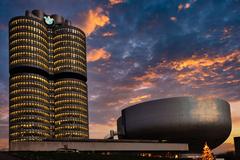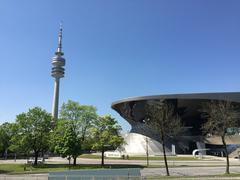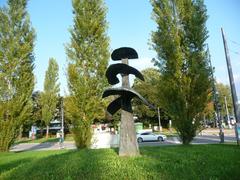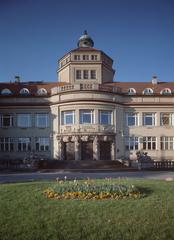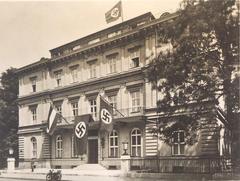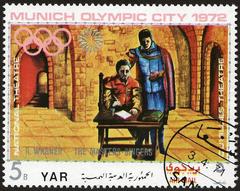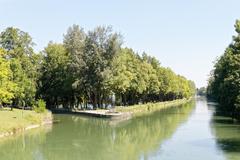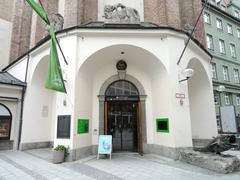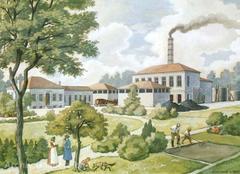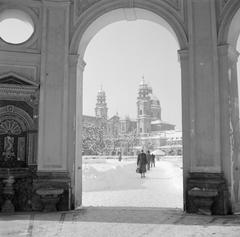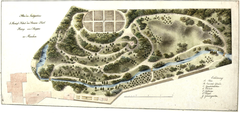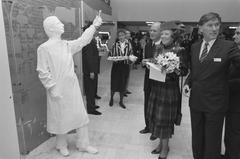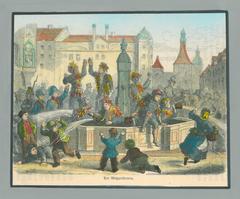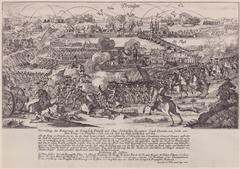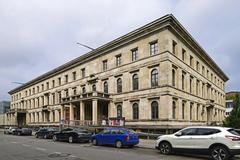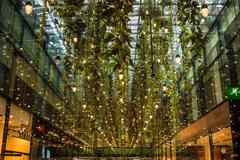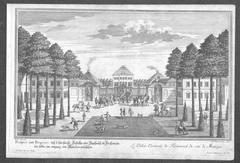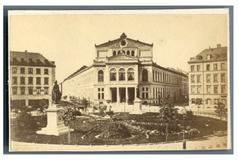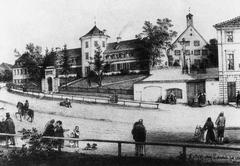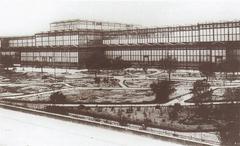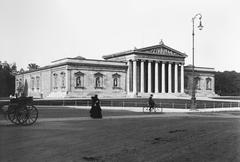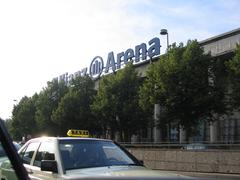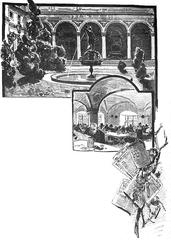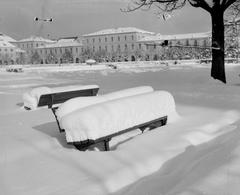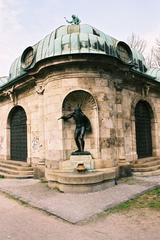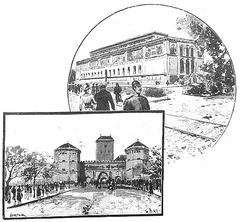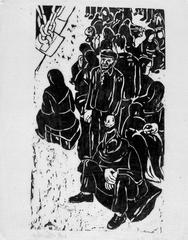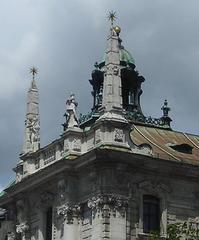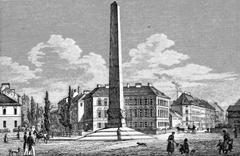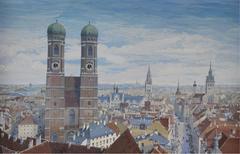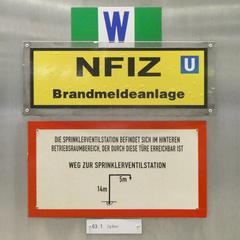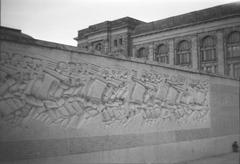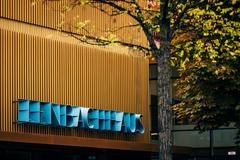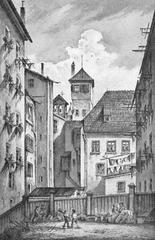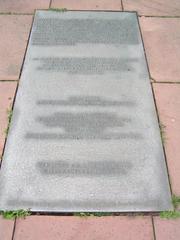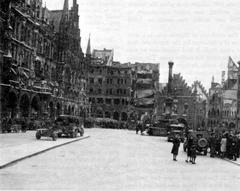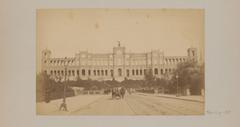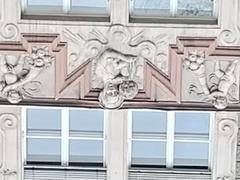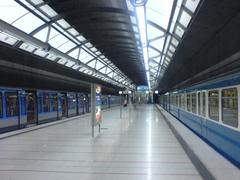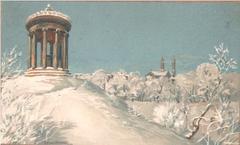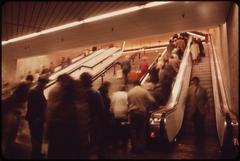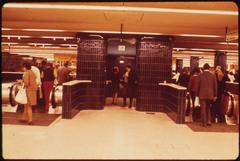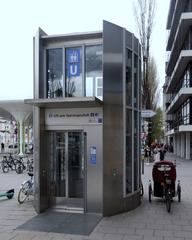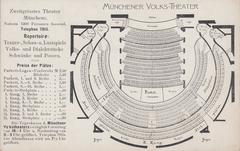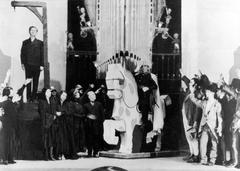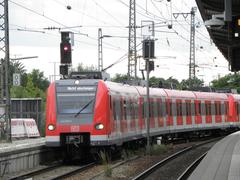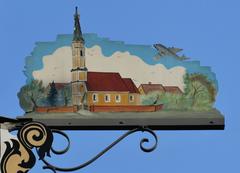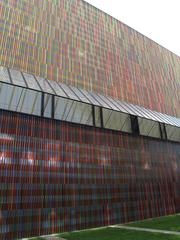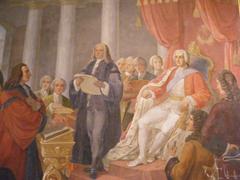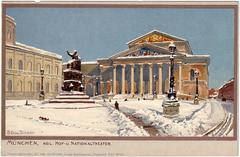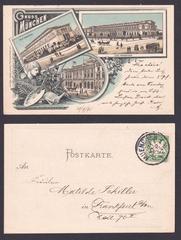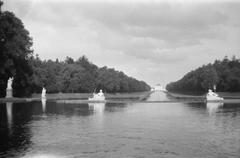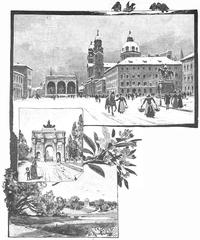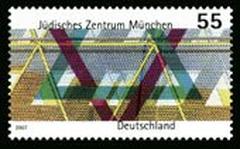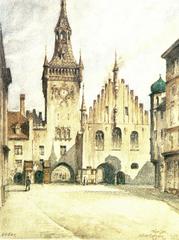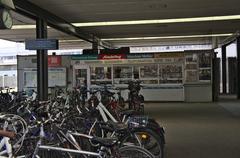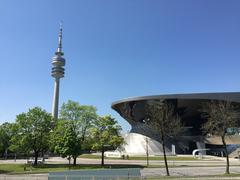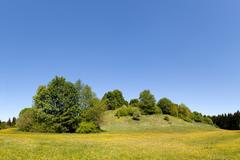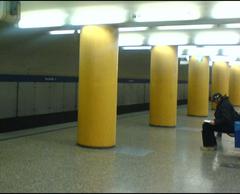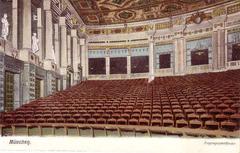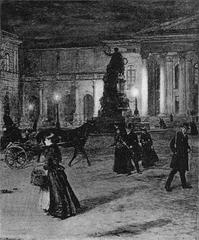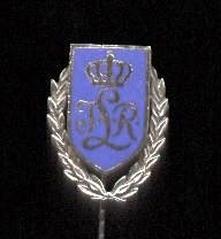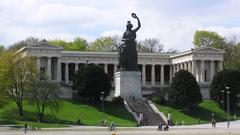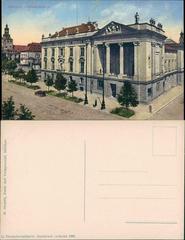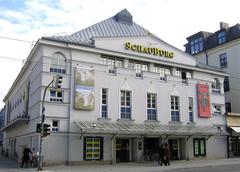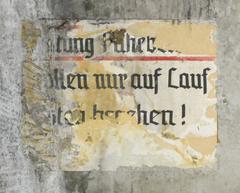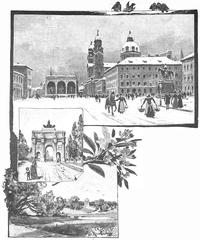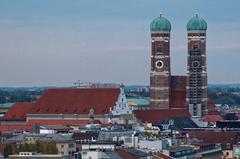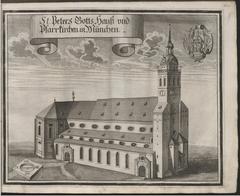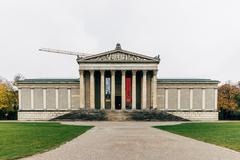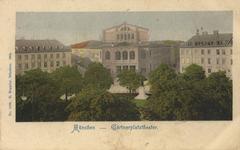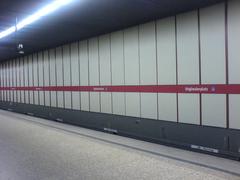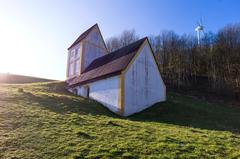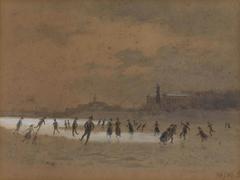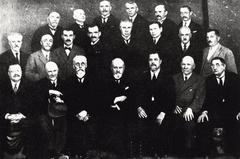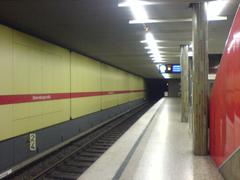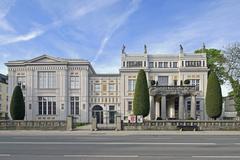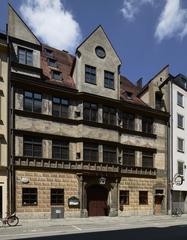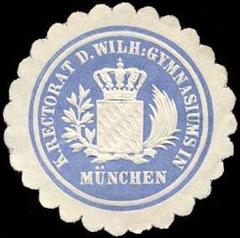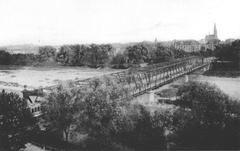Hercules Hall (Herkulessaal) Munich: Visiting Hours, Tickets, and Historical Significance
Date: 04/07/2025
Introduction
Located within the iconic Munich Residenz—the largest city palace in Germany—Hercules Hall (Herkulessaal) stands as a testament to Munich’s enduring cultural legacy. Once a symbol of royal power and now a renowned concert venue, the hall invites visitors to explore not only its rich history and neoclassical architecture but also its world-class acoustics and vibrant concert programming. Whether you are a history aficionado, a music lover, or a first-time visitor to Munich, this guide offers detailed insights into Hercules Hall’s origins, visiting hours, tickets, accessibility, and surrounding attractions.
(Absolute Munich, Munich Residence Building History, Bavaria Klassik, Audiala)
Table of Contents
- Introduction
- Historical Evolution
- Destruction and Postwar Reconstruction
- Architectural Features
- Cultural and Musical Significance
- Visiting Hours and Ticketing
- Accessibility and Visitor Experience
- Guided Tours and Nearby Attractions
- Visitor Tips
- Frequently Asked Questions (FAQ)
- Conclusion
- Sources and Further Reading
Historical Evolution
Origins: Royal Ceremonial Hall
The foundation of the Hercules Hall lies in the centuries-old Munich Residenz, originally constructed as the Neuveste castle in 1385. Over time, the Residenz grew into a sprawling palace complex reflecting Renaissance, Baroque, Rococo, and Neoclassical styles (Munich Residence Building History). The earliest version of Hercules Hall dates to the early 19th century, built under King Ludwig I as a grand ceremonial hall. Its namesake—Hercules—was chosen to symbolize strength and virtue, with original tapestries depicting the mythological hero.
Transition through the Centuries
The hall’s function and design evolved as successive Bavarian rulers expanded and remodeled the Residenz. The original Hercules Hall was eventually repurposed and renamed Max Joseph Hall. The current Herkulessaal occupies the site of King Ludwig I’s former throne room in the Festival Hall Building, designed by Leo von Klenze (1835–1842).
Destruction and Postwar Reconstruction
World War II Damage
During World War II, Allied bombing raids devastated much of the Munich Residenz, including the original throne room. Postwar, the city faced a choice: reconstruct the ornate throne room or create a new public space.
Modern Hercules Hall: A Symbol of Renewal
From 1951 to 1953, architect Hans Döllgast led the reconstruction, transforming the ruins into the Hercules Hall we know today. Rather than recreating the lost Baroque splendor, Döllgast’s vision embraced neoclassical restraint and functional modernism, prioritizing acoustics and public access (Munich Residence Building History). The hall was inaugurated as a concert venue in 1953, representing Munich’s resilience and cultural revival.
Architectural Features
Neoclassical Design
- Symmetry and Proportion: The hall’s rectangular plan, high ceilings, and balanced layout reflect neoclassical principles.
- Material Palette: Marble columns, wood paneling, and subtle ornamentation create a dignified yet inviting atmosphere.
- Tapestries and Art: Modern tapestries reference the original Hercules series, paying homage to the site’s history (Bavaria Klassik).
Acoustic Excellence
The Hercules Hall is celebrated for its superb acoustics—a result of careful architectural planning and the use of sound-reflective materials such as marble and hardwood. The seating arrangement, accommodating approximately 1,200–1,300 guests, ensures that every note reaches the audience with clarity (World Concert Hall).
Integration within the Munich Residenz
The hall’s modernist restraint contrasts with the ornate rooms and museums of the Residenz, offering visitors a striking journey through Munich’s architectural history (Muenchen.de).
Cultural and Musical Significance
Venue for Prestigious Concerts
Hercules Hall is the principal stage for the Bavarian Radio Symphony Orchestra and hosts a wide array of classical concerts, chamber music, and cultural events. Its reputation for acoustic perfection attracts world-renowned soloists and orchestras, making it a cornerstone of Munich’s musical life (Munich Travel: Arts & Culture).
Symbol of Civic Identity
The transformation from a royal throne room to a public concert hall reflects Munich’s postwar emphasis on cultural democratization. Hercules Hall’s programming and educational outreach ensure accessibility for all, fostering civic pride and public participation.
Site for State and Civic Events
In addition to concerts, the hall hosts academic ceremonies, state functions, and major cultural festivals such as the Munich Opera Festival and the Munich Biennale.
Visiting Hours and Ticketing
General Opening Times
- Munich Residenz Museum:
- April–October: 9:00 AM–6:00 PM
- November–March: 10:00 AM–5:00 PM
- Hercules Hall:
- Open to ticket holders during scheduled events and concerts. Doors typically open 30–60 minutes prior to performances.
Tickets and Booking
- Concert Tickets: Prices range from €20 to €100, depending on the event and seating. Advance booking is strongly recommended, especially for popular performances (Bavaria Klassik).
- Museum Entry: Residenz tickets (including Hercules Hall public areas) cost €7–€15, with discounted rates for students, seniors, and free entry for children under 18.
- Combo Tickets: Available for access to the Residenz Museum, Treasury, and Cuvilliés Theatre.
Where to Buy:
Tickets are available online via the Munich Residenz website, official box offices, and authorized vendors.
Entry and Security
Arrive early for security checks and ticket validation. Large bags may need to be checked at the cloakroom.
Accessibility and Visitor Experience
- Wheelchair Access: Ramps, elevators, and accessible restrooms are available throughout the Residenz and Hercules Hall.
- Special Assistance: Designated seating and staff support for visitors with additional needs (Audiala).
- Location:
- Address: Residenzstraße 1, 80333 Munich
- Public Transport: U-Bahn (Odeonsplatz, Marienplatz), S-Bahn, trams, and buses within walking distance.
- Parking: Limited; public transport is recommended.
Guided Tours and Nearby Attractions
- Guided Tours: Explore the Residenz’s history, including occasional access to Hercules Hall or its exterior, with expert commentary on architecture and art. Check schedules in advance.
- Museum Highlights: Antiquarium (Renaissance hall with antique sculptures), Residenz Treasury (royal regalia), and Cuvilliés Theatre.
- Nearby Sights: Hofgarten, Bavarian State Opera, National Theatre, Alte Pinakothek, English Garden, and Marienplatz.
Visitor Tips
- Arrive Early: Allow time for entry, seating, and exploring the Residenz’s grounds.
- Dress Code: Smart casual is recommended; formal attire is encouraged for evening concerts.
- Photography: Permitted in most museum areas but prohibited during concerts.
- Food & Drinks: Not allowed during performances; refreshments may be available elsewhere in the Residenz complex.
- Children & Families: Children are welcome, with free museum entry for those under 18. Concert tickets are required for all attendees.
Frequently Asked Questions (FAQ)
Q: What are the Hercules Hall visiting hours?
A: Open to ticket holders during concerts; Residenz Museum public hours are 9:00 AM–6:00 PM (April–October) and 10:00 AM–5:00 PM (November–March).
Q: How do I buy tickets for Hercules Hall?
A: Purchase online through official sites, at the Residenz box office, or via authorized vendors. Advance booking is recommended.
Q: Is the hall accessible for visitors with disabilities?
A: Yes, with ramps, elevators, designated seating, and accessible restrooms.
Q: Are guided tours available?
A: Yes, guided tours of the Munich Residenz often include Hercules Hall or its surroundings.
Q: Can I attend concerts at Hercules Hall?
A: Yes, concerts are scheduled throughout the year. Check official schedules for event details.
Conclusion
Hercules Hall is more than a concert venue—it is a living bridge between Munich’s royal heritage and its modern cultural vibrancy. With its elegant neoclassical architecture, exceptional acoustics, and world-class programming, Hercules Hall offers an unforgettable experience for visitors of all ages. Whether you are attending a concert or exploring the storied halls of the Munich Residenz, you will discover a unique blend of history, art, and music at the heart of Bavaria.
For up-to-date schedules, ticket information, and visitor resources, consult official websites and consider downloading the Audiala app for insider tips, ticket bookings, and exclusive content.
Sources and Further Reading
- Absolute Munich: Munich Residenz - Biggest City Palace Germany
- Munich Residence Building History
- Bavaria Klassik - Hercules Hall of the Munich Residence
- Audiala - Munich Residence
- World Concert Hall - Hercules Hall, Residenz
